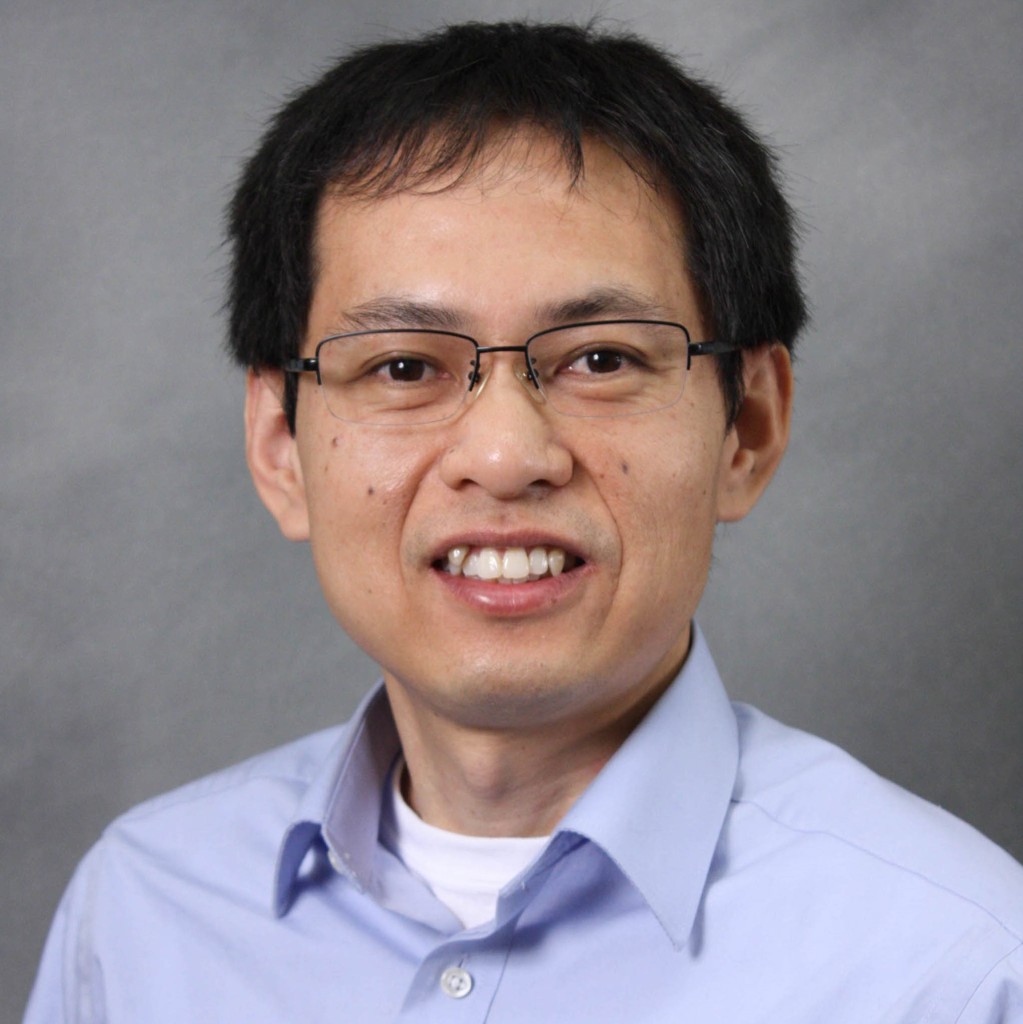Song Zhang
Purdue University, United StatesFor pioneering contributions to superfast 3D optical metrology and 3D optical video compress and telecommunication.

What do the band Radiohead and Song Zhang have in common? At first glance it might seem like these two could not be farther apart, but, as it turns out, Song’s development of real-time 3-D imaging technology was used in the video for Radiohead’s song “House of Cards.” The technology was used to capture lead singer Thom Yorke performing and was then combined with a street view captured by a laser scanner to create the final video.
Song says that the field is very popular since 3-D imaging is already part of daily life. Because of this, he finds his work very rewarding and enjoys seeing the enormous impact the field has generated. His favorite part of the research process is to see his work benefit others and to see the growth of his students and colleagues. He sees optics and photonics, as a whole, continuing to yield greater impact to society as technology advances. The next big thing in the field, predicts Song, is using “optics and photonics techniques to tackle some societally challenging problems globally,” One of the most likely areas for this, he thinks, is human health.
Despite many successes, Song still sees challenges in his research and explains that the biggest one is “to figure out how to leverage the knowledge developed in different fields to advance [his] own research discipline.” He adds that the problems he works on in high-speed 3-D optical metrology and 3-D optical information processing always interface multiple disciplines. In order to combat this, he credits mentorship. In order to find a good mentor, one must “rely heavily on knowing one’s own weakness,” Song says. “If there is an area that I want to strengthen, I will try to find a mentor who is the best in that area and is willing to offer hands. Fortunately, I was able to always find such a critical person at any given stage of my life.”
Song is grateful for the help and support he has along the way and states that he would not have been able to achieve all that he has so far without encouragement and attention from his teachers. These teachers helped him to believe that he could do as well as anyone else despite coming from “an extremely poor village in China” where electricity was not introduced until 2003 and running water not until 2017. His parents are farmers and had less than one acre of land to feed their family of five. His early years of study were focused on working hard so that he could live a better life. His main goal was to not be hungry.
His interest in science developed during the last two years of his undergraduate study at the University of Science and Technology of China. He was involved with three projects developed by the science museums in China: an earth model with a diameter of 1 meter suspended in the air by magnetic power; the square-wheeled bike; and the auto-photographing system. He says each project taught him something about the research process. “The first project taught me that mathematics I learned from a textbook could make something really cool in real life; the second project taught me how to think about relative mechanical motion as an engineer; and the third project eventually lead to my interest in imaging-related research.”
Having gone to a top undergraduate institution in China, he realized he did not have to worry about being hungry again and could focus on something beyond this initial goal. He thought he would go into industry as he did not have any journal publications at this time, but his undergraduate advisor encouraged him to pursue graduate school in the United States. It was not until his last year of graduate study that he decided to pursue an academic career. His first conference presentation was in front of a packed room and the compliments on his research were overwhelming. He was recruited as a post-doc by Prof. Shing-Tung Yau at Harvard University, despite still not having a journal publication, and this experience broadened his horizons and shaped his entire academic career.
His advice is to “Pursue a career that you are genuinely interested in, work on ‘hard’ problems, never give up if there are obstacles, actively seek advice and mentoring from experts, and most importantly enjoy the process even sometimes you may not be successful.”
Profile Written by Jeanette Gass
